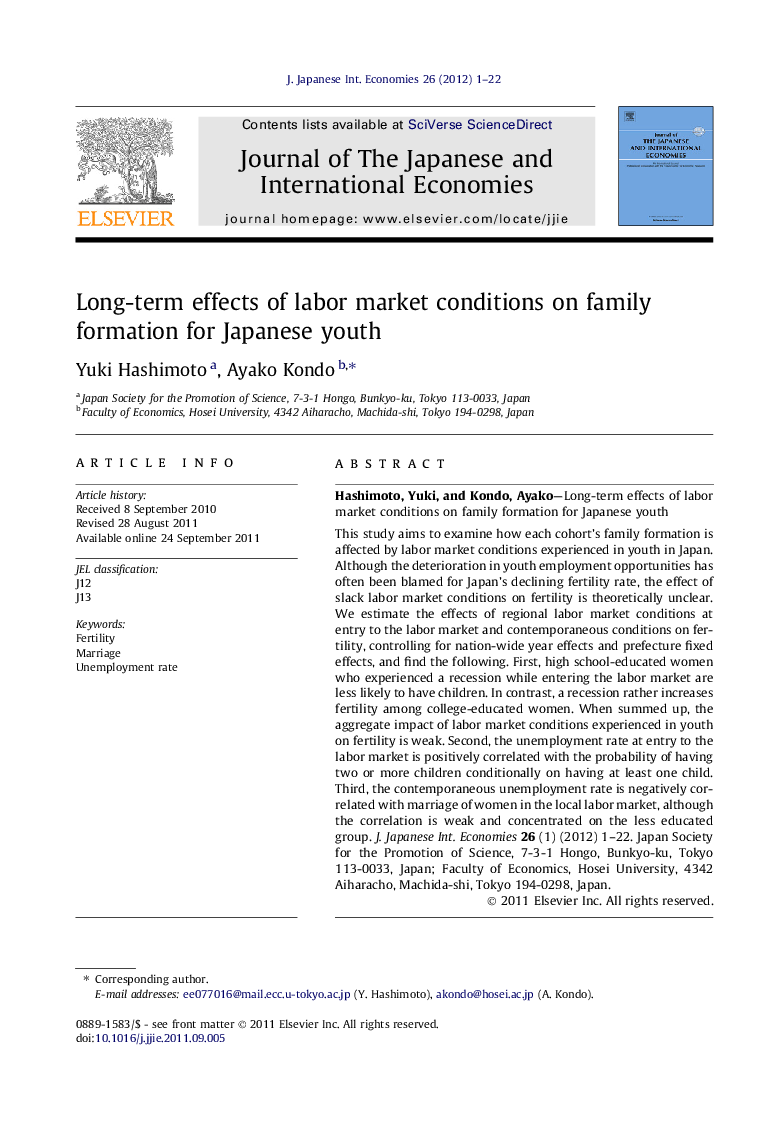| Article ID | Journal | Published Year | Pages | File Type |
|---|---|---|---|---|
| 964967 | Journal of the Japanese and International Economies | 2012 | 22 Pages |
This study aims to examine how each cohort’s family formation is affected by labor market conditions experienced in youth in Japan. Although the deterioration in youth employment opportunities has often been blamed for Japan’s declining fertility rate, the effect of slack labor market conditions on fertility is theoretically unclear. We estimate the effects of regional labor market conditions at entry to the labor market and contemporaneous conditions on fertility, controlling for nation-wide year effects and prefecture fixed effects, and find the following. First, high school-educated women who experienced a recession while entering the labor market are less likely to have children. In contrast, a recession rather increases fertility among college-educated women. When summed up, the aggregate impact of labor market conditions experienced in youth on fertility is weak. Second, the unemployment rate at entry to the labor market is positively correlated with the probability of having two or more children conditionally on having at least one child. Third, the contemporaneous unemployment rate is negatively correlated with marriage of women in the local labor market, although the correlation is weak and concentrated on the less educated group.
► A recession lowers fertility of high school-educated women in Japan. ► A recession increases fertility of college-educated women. ► A recession at entry increases the probability of having two children conditionally on having one.
